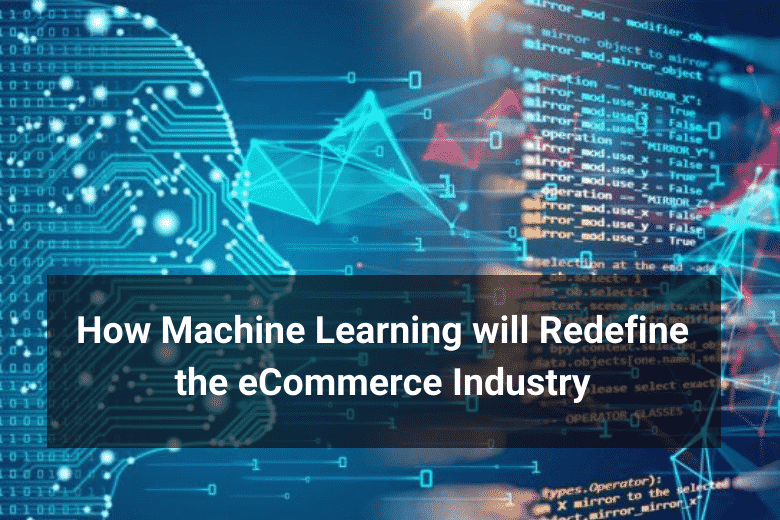Machine learning has already taken over our daily lives, without even making it apparent. Don’t believe me?
‘Despite the heavy traffic, you’re on the fastest route’; heard that before? Machine learning is how your google maps tell you that.
Left an item in your wish list at an e-commerce website, and saw that product’s recommendation while surfing the net? No one’s reading your mind! Its Machine learning, again.
Data production has risen exponentially over the years. Humongous amounts of data are being produced – each day – in some way or the other. All this data, if used effectively, can lead to innovative solutions to human problems in all spheres. ML uses all this data to learn and improve. As described by Expert System, machine learning is an application of artificial intelligence (AI) that provides systems with the ability to automatically learn and improve from experience without being explicitly programmed.
There are gazillions of things that machine learning is doing to make our lives easy. To ensure it, the appropriate machine learning framework should be chosen accordingly.
But, the power of ML is not limited to individual’s lives, it is even more influential when it comes to businesses.
Here’s how machine learning is redefining the e-commerce industry

Personalisation
Machine learning understands customers’ preferences, needs, and wants, and hence, customizes their feeds by observing and analyzing their shopping behavior. Each customer sees a unique ‘recommended for you’ and frequently bought together’ section which wouldn’t be possible without ML. This enhances the overall shopping experience of the customers. 35% of Amazon.com’s revenue is generated by its recommendation engine, according to McKinsey.
Segmentation
No two customers are the same! Machine learning helps in segmentation of the customers who land on the e-commerce website. There are various kinds of customers that visit an e-commerce website. Some customers are indecisive by nature – all they want is to browse the products, while others are quick deciders. Some customers are price sensitive and have strict price filters, while others shop from a particular brand irrespective of its price. All these categories are taken care of by machine learning. Also, the lifetime value of a customer is taken into consideration. In precise terms, (loyal) customers who are expected to bring more profit to the business are given more attention.
Customized pricing
Pricing of a product or service is never decided on a random basis. It depends on the demand for the item, competition, pricing trends, season, customer behaviour, and several other factors. This makes it impossible for marketers to manually decide the price for each product on an eCommerce website. Here is where machine learning scores. It analyses the complex data and depending upon various factors comes up with an optimal price for each product. ML, precisely, decides the best price for a product and also suggests discount rates.
Omnichannel Remarketing
The word ‘omnichannel’ means – present on all channels. Omnichannel Remarketing, basically, provides a seamless experience to the customers, irrespective of the channel they’re using. What does this mean? You were browsing through an e-commerce website on your laptop – found a product you are interested in – shifted the product to your wishlist – and checked out of the website. Now, you start seeing ads of that product while you’re browsing through Facebook on your smartphone – you click on the ad- it redirects you to the website – you check the product specifications – and instead of product delivery, you decide to pick up the product from the store. You then visit the store- go straight to your product section – enter your details – and the product is promptly brought to you.
This is what omnichannel marketing looks like. It enhances the customers’ shopping experience, across all devices and channels.
Smart search
There are times when customers do not know the exact keywords for the product they’re searching for. In such a scenario, if the focus is entirely on the words they type, the customer may never end up locating that product. That is where Machine learning can help. Rather than focusing on what the user typed, ML will focus on what they meant. This will help in displaying the products that the user most likely wanted to buy. It can help by –
- Automatic spelling correction.
- Visual search ( users will be able to search for the product through visuals rather than words) Pinterest Lens, for example, is a service wherein you just point your camera at the desired item and the algorithm will find it for you.
- Voice search – 30% of all search queries by 2020 will be voice-searched.
Smart customer service
It is not possible for a customer care executive to serve a great number of customers round the clock. But it is even more dangerous to leave the customer unattended. This is where Machine Learning can save the deal. It learns the customer’s profile, analyses the user behavior including his shopping history, and gets ready to answer his questions in a personalized manner. Chat-bots are available 24*7*365 to serve the customers. They can answer customers’ questions, place schedule, track orders, answer queries related to the recent order, and redirect to the right departments. This gives customers the feeling that a personal assistant is there, at all times, to simplify their shopping experience.
Fraud detection
All kinds of business-customer relationships are based on trust, and businesses cannot afford to lose that. There are several cases of fraud that can happen in the e-commerce industry such as – Someone may use a stolen card to shop online or a hacker may hack in the customers’ database, etc. In such situations, Machine Learning is helpful in identifying the fraud as it has already learnt the users’ profile and patterns and knows what is normal and what isn’t. For instance, If the user enters a wrong card pin or there are several orders to the same address but using different cards, the system gets an alert. If there’s an anomaly, the system asks the user for personal identity verification.
Conclusion
There is a lot of data. This data opens a world of possibilities for the e-commerce sector. As the business continues to grow exponentially, it’s only wise to incorporate data-driven strategies into it. Machine Learning is a tool to do that.
Author bio
Sourodip Biswas works with a team of experienced mobile app developers at Space-O Canada, a leading software development company. He spends his time researching technologies and mobile apps. His work has been published on various distinguished blogs across the web.

Ready To Upgrade Your Logistic Solution?
Speak to Floship ecommerce logistic consultant about improving your global support chain today




